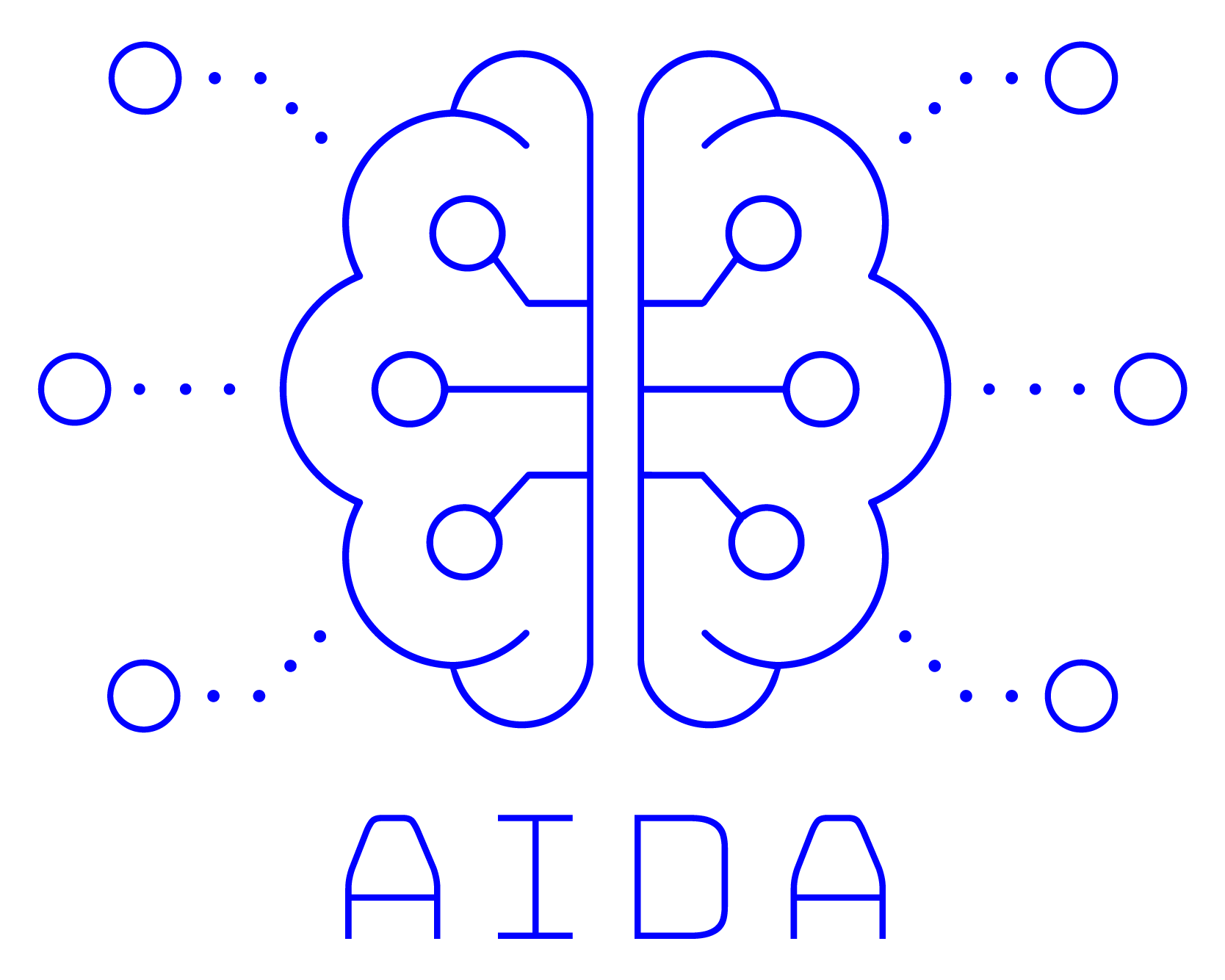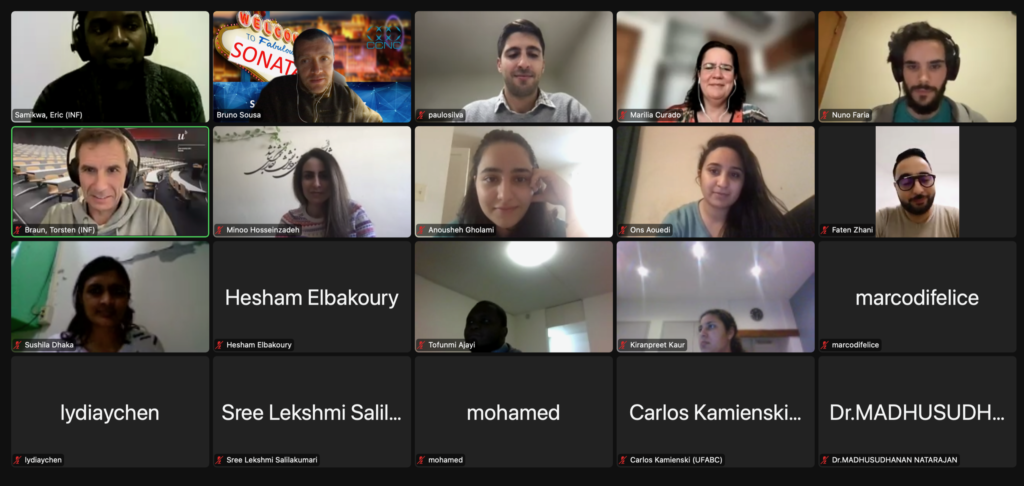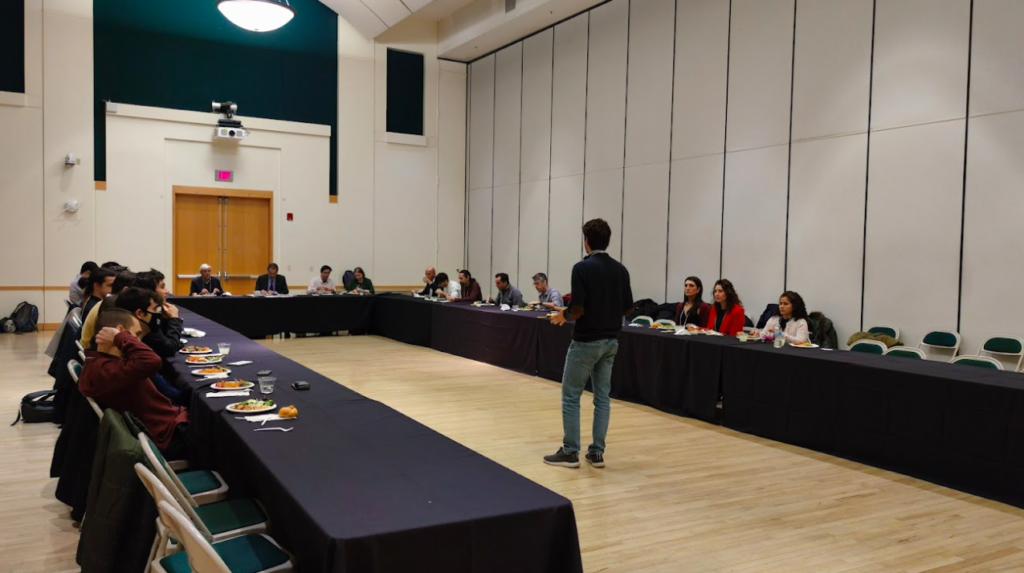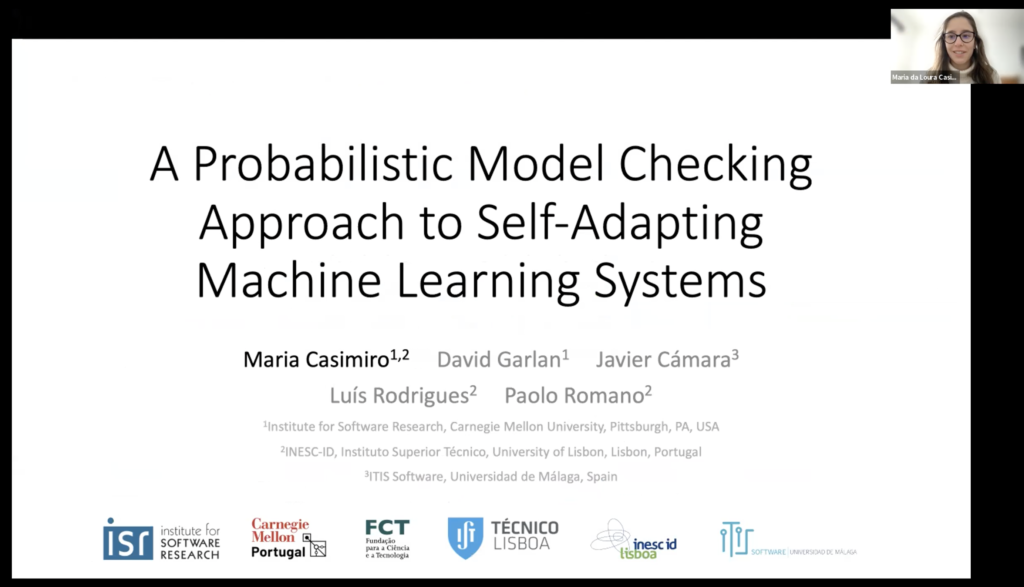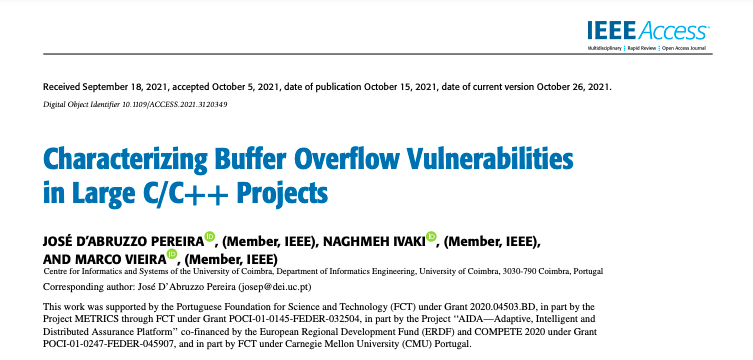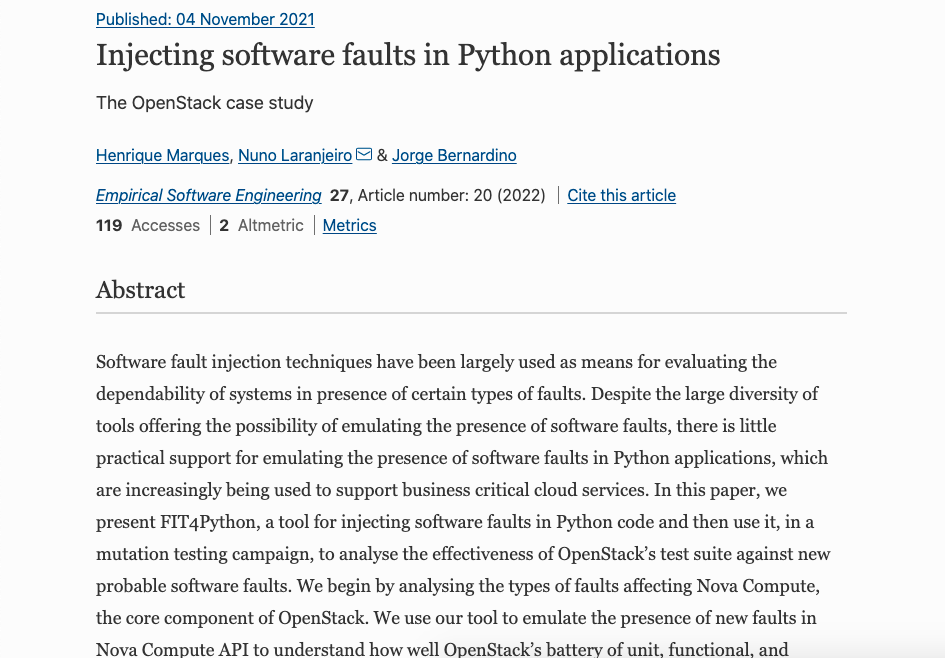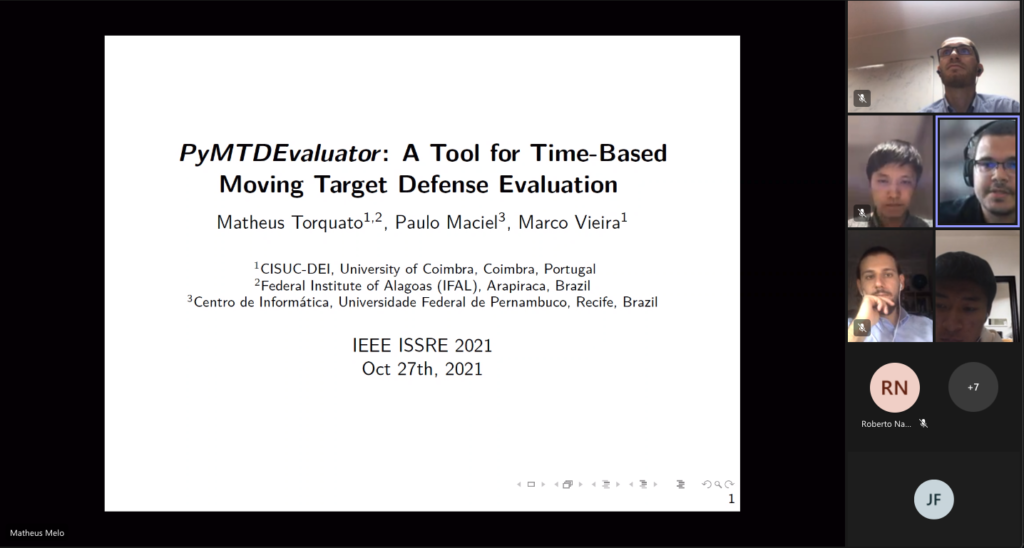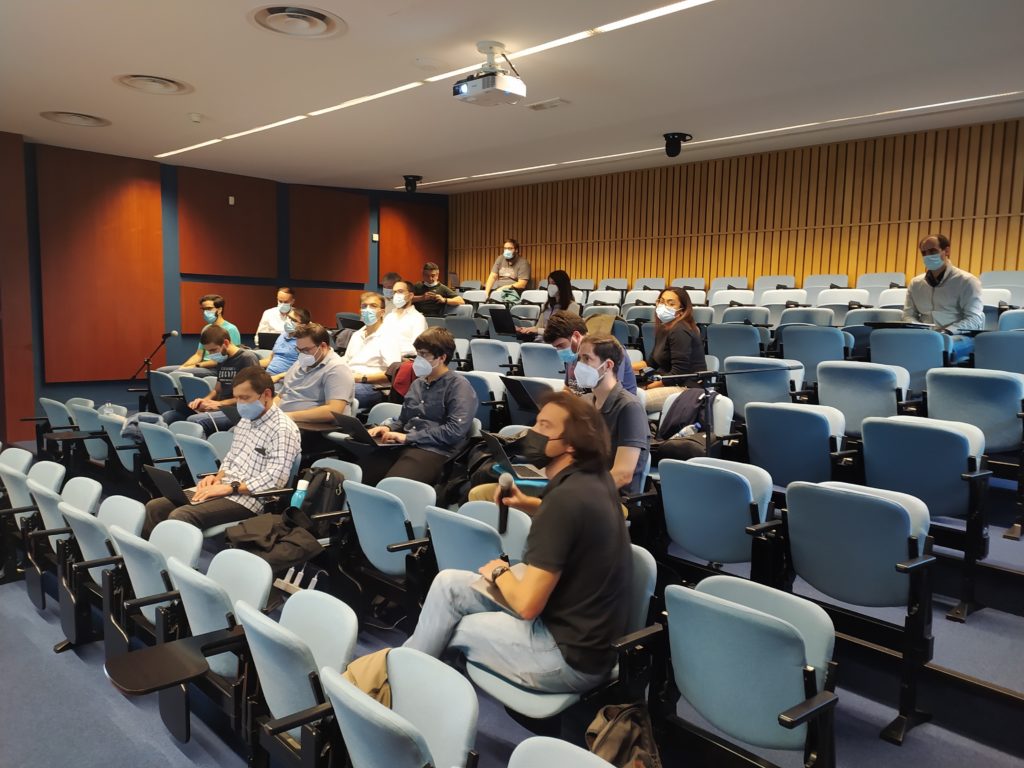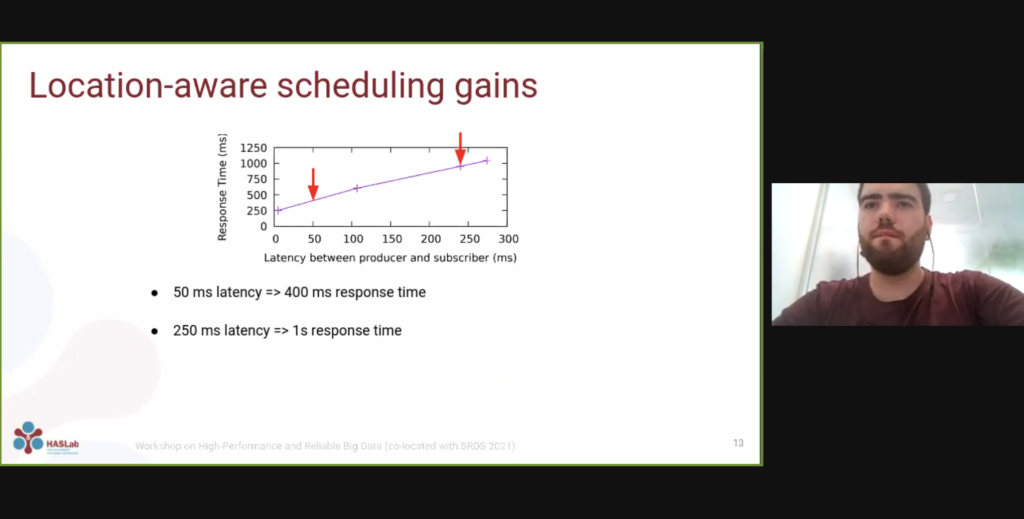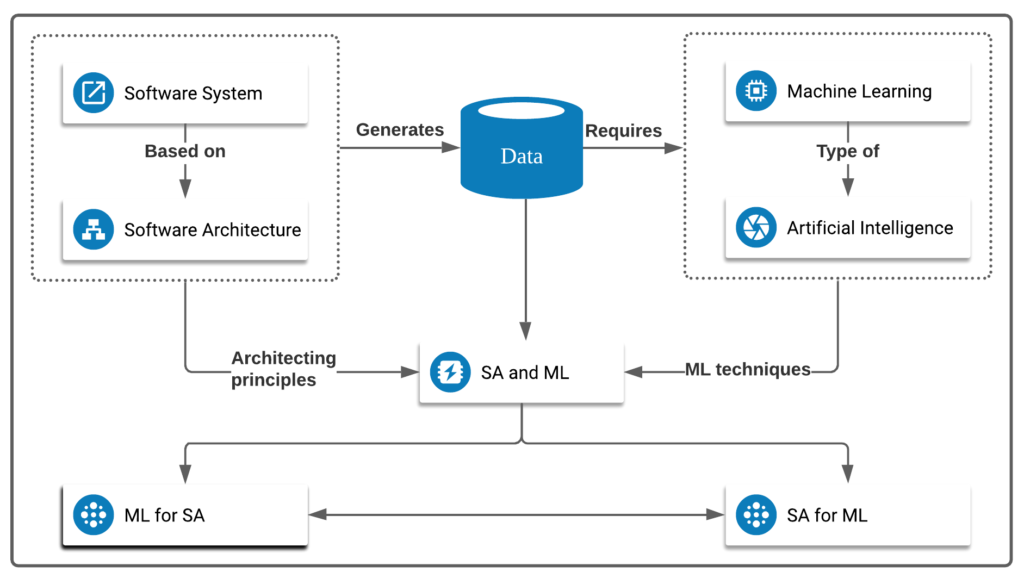AIDA organizes workshop on Secure FunctiON ChAining and FederaTed AI The 1st International Workshop on Secure FunctiON ChAining and FederaTed AI (SONATAI) was held virtually on January 8th 2022, and was co-located with CCNC (2022) with the support of AIDA and Universidade de Coimbra. With a big focus on creating a forum for researchers and engineers to present and discuss solutions, new ideas and results, authors were invited to submit papers with novel research contributions, addressing edge and cloud continuum, service function chaining and federated AI. Nuno Faria, Daniel Costa, José Pereira, Ricardo Vilaça, Luís Ferreira and […]
Read More
The Portuguese Minister of Science, Technology and Higher Education meets AIDA Manuel Heitor, the Portuguese Minister for Science, Technology and Higher Education, visited Carnegie Mellon University (CMU) in Pittsburgh, where he was presented with the AIDA project and its main goals and challenges. Heitor, during his visit, met with several faculty and students and attended three different workshops. The workshops were focused on addressing the themes of the Program’s Large-Scale Collaborative Research Projects, one of which was led by by Pedro Ferreira (IntelligentCare), together with Christos Faloutsos from AIDA, Asim Smailagic from TAMI, and Carmel Majidi from Wow. […]
Read More
New Paper presented at ASYDE 2021 “A Probabilistic Model Checking Approach to Self-Adapting Machine Learning Systems” is the newest paper, under the scope of the AIDA’s project, was accepted and presented at the 3rd International Workshop on Automated and Verifiable Software System Development (ASYDE) 2021. Written by Maria Casimiro, David Garlan and Javier Cámara, Luís Rodrigues and Paolo Romano, the paper introduces a formal framework that enables reasoning about whether to adapt machine learning (ML) models of ML based systems, considering the trade-off between the costs and benefits of adaptation. Such a framework can be particularly useful since ML-based […]
Read More
New paper in the scope of AIDA’s project is published on IEEE Access “Characterizing Buffer Overflow Vulnerabilities in Large C/C++ Projects” is one of the newest papers published by AIDA in IEEE Access. José D’Abruzzo Pereira, Naghmeh Ivaki and Marco Vieira were the authors of one of the newest papers under the scope of AIDA’s project. This paper, with a great focus on security vulnerabilities of software systems, was peer-reviewed, accepted for publication, and published on IEEE Access. This study highlights the fact that most buffer overflow vulnerabilities are not detectable by vulnerability detection tools and there is a need […]
Read More
“Injecting software faults in Python applications” is the title of AIDA’s new paper The AIDA Project recently published a new paper, primarily focused on software fault injection techniques in Python applications. “Injecting software faults in Python applications”, a paper carried out by Henrique Marques, Nuno Laranjeiro and Jorge Bernardino, under the scope of AIDA’S project, was peer-reviewed and accepted for publication. The paper introduces FIT4Python, which is a tool focused on injection software faults in Python code and then used to analyze the effectiveness of OpenStack’s test suite against feasible software faults. According to the contributors, they use the […]
Read More
AIDA paper develops tool for time-based Moving Target Defense (MTD) evaluation The most recent paper of AIDA project, entitled “PyMTDEvaluator: A Tool for Time-Based Moving Target Defense Evaluation”, was presented at the 32nd International Symposium on Software Reliability Engineering (ISSRE 2021), which was held between 25-28 October, 2021 in Wuhan, China. PyMTDEvaluator is a tool for time-based Moving Target Defense (MTD) evaluation. It allows analyzing and comparing different alternatives for MTD scheduling, thus supporting the decision-making process for the MTD deployment. PyMTDEvaluator provides a friendly interface and is open-source. Users can feed it with inputs to obtain information to answer questions, […]
Read More
AIDA partners organized an internal workshop The AIDA project organized an internal workshop for all the partners that are part of the project, in order to plan the next steps for the development of the new version of Mobileum’s RAID, compatible with edge computing and 5G, while ensuring privacy and confidentiality. This initiative was held in the city of Porto, on October 25.
Read More
AIDA researchers participated in the HPBD 2021 Our researchers have participated in the 1st Workshop on High-Performance and Reliable Big Data (HPBD 2021), which was held virtually on September 20th 2021, and was co-located with the 40th International Symposium on Reliable Distributed Systems (SRDS 2021). In consideration of the capabilities of IoT devices for globally distributed computational processing, it is essential to schedule workloads across the various geographic locations available. Geolocate is a generic scheduling system that accounts for both the available computational resources and the geographical location of nodes when deploying workloads. The paper presented at this workshop entitled “Geolocate: A geolocation-aware […]
Read More
AIDA paper studies the use of static data from the code to detect security vulnerabilities with Machine Learning The most recent paper of AIDA project was presented at 17th European Dependable Computing Conference (EDCC 2021) and evaluates the ability of the four Machine Learning algorithms to predict vulnerable files in an Open Source C/C++ project (Mozilla). The paper is entitled “Machine Learning to Combine Static Analysis Alerts with Software Metrics to Detect Security Vulnerabilities: An Empirical Study“, and the authors of this paper are José D’Abruzzo Pereira, João R. Campos, and Marco Vieira, from the University of Coimbra. […]
Read More
AIDA researchers presented paper at SAML 2021 The AIDA project partners presented a paper at the 1st International Workshop on Software Architecture and Machine Learning (SAML) 2021, which is co-located with the 15th European Conference on Software Architecture (ECSA) 2021 and took place online on September 14, 2021. Today’s world is witnessing the rise of systems that rely on machine learning. These systems typically operate in environments that are prone to unexpected changes, as is the case of self-driving cars and enterprise systems. Due to the unexpected changes, machine-learned software in these systems can malfunction. Thus, it is paramount that […]
Read More
